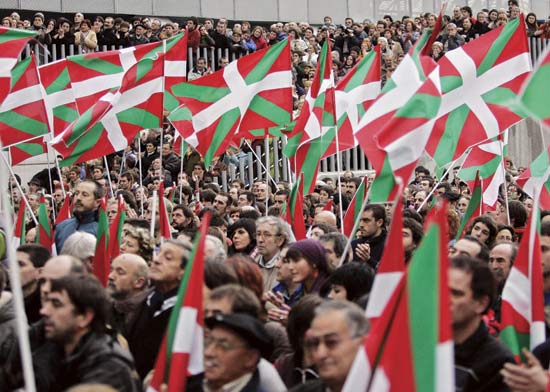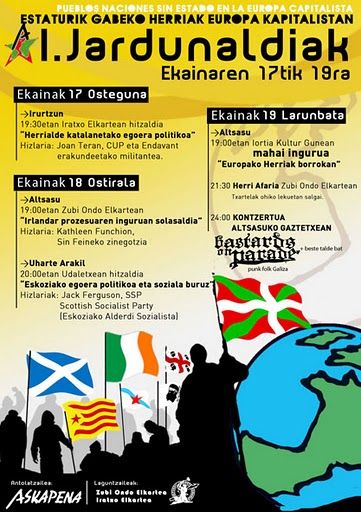Recent Comments
- Andy Bowden on Class politics or anti-semitic conspiracies? Why David Icke, Ron Paul and Alex Jones are dangerous to the Occupy Movement.
- Andy Mc on Class politics or anti-semitic conspiracies? Why David Icke, Ron Paul and Alex Jones are dangerous to the Occupy Movement.
- declan on For a Radical Independence Movement.
- Andy Bowden on For a Radical Independence Movement.
- arm 'n' hammer on For a Radical Independence Movement.
Tags
afghanistan austerity britain BNP climate change Con Dem coalition demonstration drugs economy edinburgh education elections environment events evil megacorps fascism feminism fighting cuts glasgow greece health internet knobheads Labour Lib Dems moral panic music news police protest racism science SDL sexism sexuality SNP strikes tabloids Tories tv unemployment unions USA war women's rights workers' rightsArchives
- June 2012
- May 2012
- March 2012
- January 2012
- December 2011
- November 2011
- October 2011
- September 2011
- August 2011
- July 2011
- June 2011
- May 2011
- April 2011
- March 2011
- February 2011
- January 2011
- December 2010
- November 2010
- October 2010
- September 2010
- August 2010
- July 2010
- June 2010
- May 2010
- April 2010
- March 2010
- February 2010
- January 2010
- December 2009
- November 2009
- October 2009
- September 2009
- August 2009
-
Authors
- admin
- And
- Andy Bowden
- Brogan
- CelticEwan
- David
- David Ward
- Erofeeva
- Euan Benzie
- Frenchie
- ImSpartacus
- Jack
- James McIntyre
- James N
- Kirsty Kane
- Liam M
- Liam T
- lovebug
- LydiaTeapot
- Meghan
- Muzza
- Neil B
- neldo
- Sarah
- Scottish Socialist Youth
- Snowball
- Socialist Pharmacist
- Sophie
- Squeak
- Stuart
- syebot
- TheWorstWitch
- Wavejumper
Freedom for the Basque Country!
I’m writing this from Stansted airport, en route to a major international conference in the Basque country at which the SSP and SSY have been asked to represent Scotland.

The Basque people are quite possibly the oldest still existing nation in Europe. They speak a language completely unrelated to any of the other European languages, and which probably predates the arrival of modern Europeans thousands of years ago. Evidence of how old their language is includes the fact that the words for “axe” and “knife” contain the roots of the word for “stone”, suggesting these words have been the same since the Stone Age.
In Medieval times, the Basque lands were gradually absorbed into the territory of France and Spain, and today there are three Basque provinces in the French state and four in the Spanish.
The Basques have suffered tremendous oppression as a result of their desire for independence and to defend their language and culture. After the Spanish civil war, the fascist dictator Franco undertook repression against all the minority peoples of Spain, such as the Basques and Catalans. Thousands were jailed or executed, and to speak your own language became a crime.
As a result, an armed resistance movement, Euskadi ta Akatasuna (Basque Homeland and Freedom), emerged, and played a major role in the resistance to the fascist dictatorship, perhaps most famously by assassinating Franco’s handpicked successor and President of the government Admiral Luis Carrerro Blanco. His death helped ensure that Spain would undergo a transition to parliamentary democracy, and that the dictatorship would not continue.
The fascist regime came to an end in 1978, and there was a move towards a new democratic constitution for Spain that would allow the Basques and Catalans their own parliaments, and some devolved autonomy, a bit like what Scotland now has.
When put to a referendum, the new constitution was approved throughout Spain, but not in the Basque country. Although it allowed some autonomy, it specifically denied the right of the Basques to vote for full independence, and gave the Spanish military the right to intervene to prevent this. This was rejected by the Basque people, who realised it was an attempt to buy off their desire for independence and integrate them into the Spanish state.

Despite Spain now supposedly being a democracy, the repression continued. In the 80s, the state set up the Grupos Antiterroristas de Liberacion (‘Antiterrorist Liberation Groups’, or GAL) to conduct a dirty war against the Basque national movement. These state supported death squads committed murder, kidnap and torture, not just against members of ETA but against civilians demanding Basque independence as well. These were set up by the supposedly “Socialist” governments (in reality more analogous to the Labour Party here), who claimed it was necessary for the state to “defend itself in the sewers.”
Despite this, the Basque national liberation movement has grown in strength and organisation. It is composed of a whole series of different organisations, from feminist and ecological groups, to a pro-independence left wing Basque trade union association, to self organised autonomous youth groups.
The youth groups are of particular interest to SSY, considering some of the really cool stuff they’ve done. They organise youth assemblies for young people in a particular area to discuss issues that relate to them and organise action. They clear out derelict buildings and turn them into self managed autonomous youth centres for people to have somewhere to hang out. They’ve even set up and run their own radio stations and record labels. All these are run on the principle of young people organising for themselves, autonomously.
It’s important to understand that the national liberation movement is heavily influenced by anti imperialist struggles around the world, from Palestine to Latin America, and as a result is firmly left wing and socialist in its outlook. Like the SSP and SSY, their vision is for an independent, socialist Basque country.
The brutal repression against the Basque movement has continued. In 2003, the left wing pro-independence party Batasuna was banned by the Spanish state, and prevented from standing in elections. Its leaders have been jailed, often on the opposite side of Spain from the Basque country. The youth movements have also been targeted, with their leaderships being jailed en masse.
Another scandalous move was the banning of the only exclusively Basque language newspaper Egunkaria. It was shut down in 2003, accused of being a front for ETA. Just last month, courts completely exonerated the journalists of these charges. Editor Martxelo Otamendi says he was tortured in detention.
Right now the Basque parliament is governed by an alliance of the “Socialist” party, and the right wing People’s Party, which traces its ancestry back to Franco. This alliance has put the moderate Basque National Party (PNV) out of power. To make an analogy, if Batasuna are a bit like the Basque SSP (except quite a bit better organised and influential!), the PNV are the Basque SNP. To continue the analogy, the current Basque government is like Labour and the Tories teaming up to keep the SNP out of power.
But the Basque pro independence left are regrouping and preparing the way to move forward with their struggle for independence and socialism. One of the ways they’re doing that is by strengthening their international links.
The organisation I’m going to meet, Askapena, organise brigades to other countries to learn from their struggles, and have recently visited Cuba, Venezuela and Greece. This August they intend to visit Scotland, and participate in Camp Secret Squirrel, so that’ll be a great chance for us to learn more about their struggle.
They’ve organised a conference to discuss the national liberation struggles of stateless nations in Europe. It’s a real honour and a privilige to have been invited to participate in these discussions. I intend to gather as much info as I can, interview Basque comrades, and generally give Leftfield the first scoop on everything going down in the Basque lands. So, keep checking back here for more updates, I’ll be adding them as often as I’m able to get internet access.

Great piece Jack. Scottish republican socialist separatists can learn a lot from our comrades in the Basque Country as well as Ireland, Corsica and others who will be there.
I notice Provisional Sinn Fein will be speaking – i will be very interested to hear what the representative of constitutional reformist nationalism has to say. Be interested in your report back Jack.
On the subjects of internationalism, anti imperialism, republicanism and Celtic solidarity- will any representative of the SSY be attending the Welsh Republican Celtic camp and commemoration march for the two MAC Volunteers killed in action in 1969, at the Abergele commemoration in north Cymru on Friday 2nd July and Saturday 3rd of July? Republicans from Wales, Scotland, Ireland, Cornwall, Breton and Galicia will be attending. There will even be representatives of both PSF and 32CSM putting their differences aside to promote Welsh independence and the break up of the British state. SRSM will be there representing Scottish Republicanism but it would be great if SSP/SSY and SNP members were present.
The original Sinn Fein speaker couldn´t make it, so it was a former republican prisoner who came to speak. Unfortunately he had to go home today, so he won´t be able to participate in the roundtable event with me. He did speak last night but it was in a specific meeting on Ireland, at the same time as I was speaking in another village about Scotland, so I´m afraid I can´t give you a report of what he said. Certainly hanging out during the day though he seemed like a decent enough guy, I didn´t get much of a chance to question him much about the situation in Ireland because I´ve been trying to learn as much as possible from the Basque comrades.
The roundtable event tonight is now going to feature me talking on Scotland, a comrade from Catalonia and a Mapuche speaker on the struggles of the indigenous people in Chile and Argentina.
On the Welsh event, I haven´t heard of it before, do you have a link or somewhere we could read more about it?
Jack this is a fantastic article. i’m so jealous lol.
looking forward to reading more